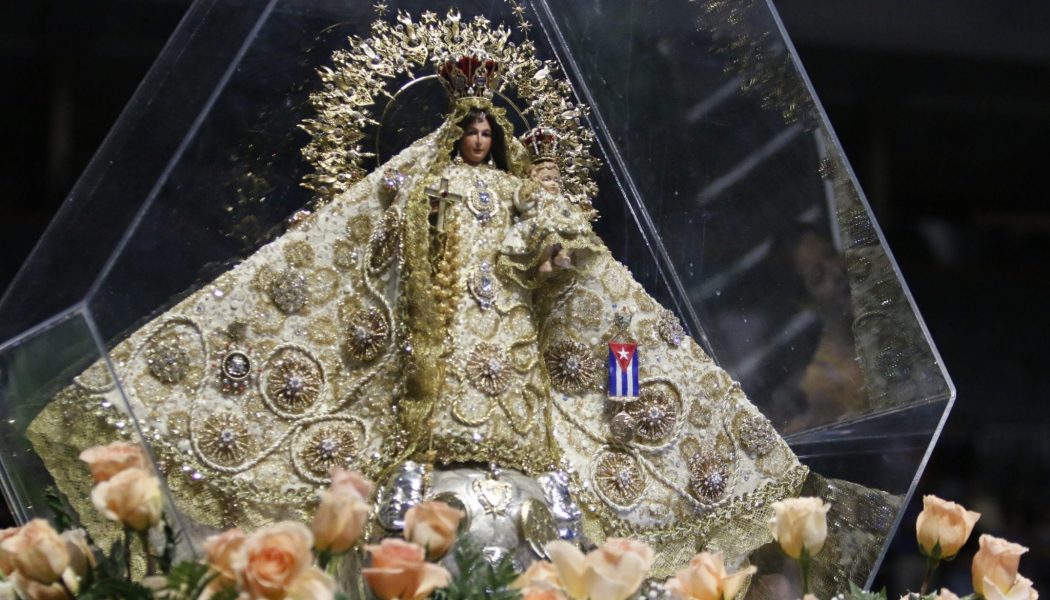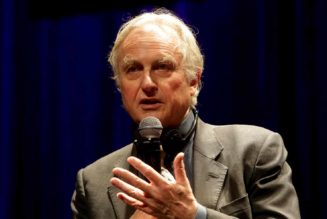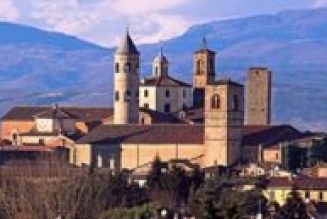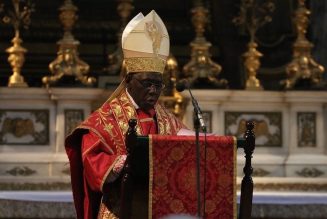
ROSARIO, Argentina – The Church in Cuba is warning against politicizing religious festivals after events surrounding the Feast of Our Lady of El Cobre (Our Lady of Charity), the patroness of the island.
In the days leading up to the celebration, the opposition organized a symbolic protest, asking people to dress in yellow and to carry yellow ribbons, for what they dubbed the “revolution of the sunflowers.”
However, according to Spanish news agency EFE, it’s tradition for all Cubans to wear yellow on Sept. 8 – known locally as Cachita – is one of the few symbols able to garner support from nearly everyone in the Communist-ruled country.
Fidel Castro, who died in 2016, banned Christmas in 1969 and only reinstated its observance as a national holiday in 1998, after a visit from St. John Paul II.
On Sunday, Mariela Castro – daughter of former president Raul Castro, who took over from his brother in 2008 – tweeted: “Thank you Chachita for protecting him, for protecting #Fidel and the Cuban Revolution. Oshún will not accept offerings from mercenaries and traitors.”
Oshun is a deity of African origin also venerated on Sep. 8 by practitioners of Santeria, a syncretic faith that mixes elements of African indigenous faiths with Catholicism.
In a column published in the magazine of the Archdiocese of La Habana, Palabra Nueva, journalist and poet Antonio Lopez Sanchez argued that neither side of the political divide has the “right to politicize a celebration that calls for harmony, peace, union, not to hatred.”
He denounced that the “hairy ear” of politics has emerged during the feast because “again the ideological positions, and even more so, hatred and the desire to separate and prevail, they try to meddle and dirty issues where such attitudes and feelings should not have a place.”
“It’s known that among Cubans, from the soap opera, passing through the baseball team, to the latest news that haunts the popular voice, there are plenty of disagreements and eternal discussions,” Lopez wrote. “However, there are symbols and figures that have managed to overcome all adversities and have almost unanimous devotions and special affections, both among Tyrians and among Trojans.”
One such symbol, he argued, is Our Lady of Charity.
In the column titled “Mother of Cuba, Mother of All,” the journalist condemned the use of the “sacred symbol” to sustain or oppose a political system.
“On one side, those who oppose the Cuban social system pretend to turn a religious celebration of national tradition into a protest,” he wrote. “On the other, voices of the most stale and supportive orthodoxy (the same ones, or the heirs of those, who once wanted to erase all vestige of religion as a scourge of the past), now rise in a defense” that many feel is “forced or too opportunistic.”
Showing the many contradictions in the Cuban socialist regime, Cuban President Miguel Diaz-Canel shared his own thoughts on Twitter on Tuesday.
“The Virgin of Charity accompanies Cubans, in their hours of sacrifice and triumph,” he tweeted. “In the national soul, her image is worshiped as a symbol of hope and faith. Narrators and poets, musicians and dancers have consecrated works to her. She too is #Cuba.”
“The Cuban Virgin and the Revolution of all flowers,” Diaz-Canel had shared in a previous message. “The road will not be easy, but the triumphal bath of flowers of the Cuban Revolution already occurred during a caravan that opened the way for the people, among necklaces of Santa Ana, to justice and freedom.”
Yet Johana Tablada de la Torre, sub-director of the Cuban foreign ministry, went after the Catholic Church, saying that in 1961, the Castro regime expelled 136 priests from the country because the “CIA with the Cuban Church organized one of the operations of deception most cruel of the Cold War that led to the separation of thousands of children from their parents.”
She was referring to the so-called Peter Pan operation, that from 1960 to 1962 transported Cuban children to the United States at the request of their own parents, who didn’t want them growing up under communism.
The Cachita also entered the political fray across the Florida straits, where the Cuban-American community is an important voting bloc in the swing state Florida.
“On the Day of the Virgen de la Caridad del Cobre, [my wife] Jill and I pray that the love and compassion that ‘Cachita’ inspires will fill the hearts of her believers around the world,” said former vice president Joe Biden in a statement addressed to Cubans in South Florida.
“Like so many, our faith serves as the bedrock of our life — humbling and grounding us in fortunate moments, and providing comfort and purpose in the darkest of times,” he wrote.
“This challenging time for our nation and for the world reminds us of the importance that we can all live and practice our faith freely,” added Biden, a Catholic.
The Spanish-speaking Twitter account of President Donald Trump also marked the occasion with a tweet saying: “Today, we unite ourselves to the Cuban people and our Cuban American friends to honor the Virgin of Charity. Pope John Paul II described Cachita as the ‘loving mother’ of all Cubans, and today we united ourselves to them to celebrate her. May God bless you!”
Politics aside, this year’s celebration of Our Lady of Cobre in Cuba were affected by the COVID-19 pandemic. The Catholic churches on the island were closed, and there were no processions in the streets. Instead, the Cuban public TV channel broadcasted a pre-recorded Mass, celebrated in the Shrine of Our Lady in Santiago de Cuba.
Follow Inés San Martín on Twitter: @inesanma







